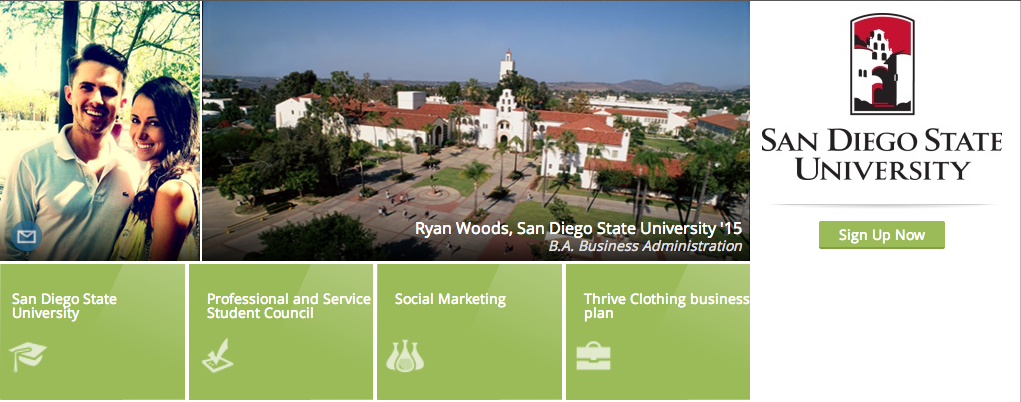With commencement ceremonies a mere six months away, soon-to-be graduates are preparing to enter the cold grip of the real world. Even though graduation means the end of exams, essays, homework and all-nighters in Love Library, Aztecs will have to embark on the grueling transition from college to career. Finding the perfect job after graduation can become a full-time job itself, and the search can be overwhelming and intimidating to anyone fresh out of school. That’s why Careerflo, a new career-finder website based in San Diego, strives to make the searching for the perfect job as smooth and simple as possible.
“We are a matchmaker,” Careerflo CEO Sam Pfleg said. “We like to think of ourselves as a dating website, sort of a match.com for careers.”
Pfleg and his partner Ryan Mayo graduated from Arizona State University in 2010 and were overwhelmed by the search for their first job. After interviewing with 20 companies, Pfleg said he had no idea which job he wanted or which one was right for him. That’s when the idea for Careerflo was born. The partners wanted to create a website that helped students and graduates show employers that they were more than just a resume.
“We want them to succeed and we want to empower them to find careers that are right for who they are,” Pfleg said. “We don’t want students to go out there and just apply to any job and take a job just because they got a job offer.”
Careerflo is a bridge between students and employers, and is quite often compared to LinkedIn, according to Pfleg. But Careerflo’s creators pride themselves on the website’s emphasis on career matching, not professional networking. Profiles are not viewable among peers, only by prospective employers.
The site allows for a decent amount of customization but works very simply. Job seekers start by adding basic information to a profile. Then, users create a video introduction that highlights their biggest accomplishments and showcases their personality. This video allows employers to get to know a candidate and improves the chances of finding the right job, according to Pfleg. After that, users can set their career preferences such as prospective job industry, desired salary and benefits and other important information. Different areas on a profile can be highlighted and moved to the top of the page so employers can easily see what information is most important for that candidate.
A user profile on Careerflo is very personal, and features a profile picture and a banner photo at the top of the page. Underneath the photos are highlights that each user picks, such as most important accomplishments and career plans. The rest of a profile features information found on a resume but goes above and beyond that. Users may include relevant college courses taken, personal or professional projects, pictures and interests. All of this information is key in helping match candidates to the right job, Pfleg said.
After a profile is created and all information is updated, Careerflo starts its search to find the perfect match between job seekers and employers. The site’s “match dashboard” shows users how closely he or she matches with a company, displayed in percentages. Employers are then notified if a user is interested in a job position and the matchmaking continues from there. Careerflo facilitates communication between employers and job seekers by hosting messaging and conference calling all on the same site.
Students and recent graduates may join Careerflo by requesting an invitation to the website. Careerflo may be brand new but it’s ready to begin matching students with the right job.
While job seekers may join Careerflo for free, employers must pay in order to post job openings. The website prescreens candidates for job recruiters and determines who is right for what job. By giving employers only the most relevant candidates for a job, they are cutting time from the interview process and saving companies money in the long run, Pfleg said.
Only the most relevant candidates are sent to employers and only the most relevant job positions are shown to candidates, making the search for the right job much easier.
“There’s no such thing as a bad candidate and there’s no such thing as a bad job, there’s just such a thing as a bad fit and that’s really what we believe in,” Pfleg said.







